An Open Letter from WWOZ General Manager David Freedman to Mayor Landrieu and the New Orleans City Council, regarding the Comprehensive Zoning Ordinance now before the City Council, and fourteen questions about the consequences of that Ordinance for live music in New Orleans.
Honorable Mitch Landrieu and Members of the City Council of New Orleans,
Last month, the City Zoning Commission recommended a Comprehensive Zoning Ordinance which is now before the City Council. According to the New Orleans Advocate (October 2, 2014) the City Council held its first hearing Tuesday, September 30, and plans to vote on this ordinance no later than November 21st.
However, it is more likely that the Council will “vote on it before then so that it doesn’t interfere with hearings on the city’s 2015 budget,” scheduled to begin October 27th. Official notice was sent out a week ago by the Clerk of Council, Lora W. Johnson, advising that
a public hearing has been scheduled before the City Council of New Orleans on City Planning Commission Zoning Docket No 81/14—Request by City Council Motion M 14-314, for the complete amendment to the entirety of Ordinance No. 4264, The Comprehensive Zoning Ordinance of the City of New Orleans, citywide…scheduled forThursday, October 16, 2014 to commence at 11:00 A.M…. In accordance with the Rules and Regulations of the Council, no more than five person on each side of an issue shall be heard and each speaker shall be limited to three minutes.
Nonetheless, the New Orleans Advocate reported: “Individual council members will meet with various groups and residents of their districts to discuss the new CZO before the vote. As of Tuesday [September 30], only Councilwoman LaToya Cantrell had set a date,October 13, for a district meeting on the document.”
Also attached is a 30-page PDF file containing selected provisions of the CZO that refer to music regulation interspersed in the 618-page document. It is not an easy read, and it raises more questions than it answers. For the sake of clarity, the questions which follow these passages are addressed to the city administration and city council members. As one person who read the proposed CZO commented:
It would take a rocket scientist with a lawyer in one’s pocket if you’re a musician to figure out what you can and cannot do.
Since I don’t have those credentials, I can only say that I am a life-long resident who was born here and who has dedicated his life to encouraging an appreciation of this city’s rich musical heritage and the culture bearers who bless our city as nowhere else in the U.S. I am deeply concerned about this Comprehensive Zoning Ordinance and a process for its adoption that is to me obscure and confusing. I’d like to speak to the decision makers, both in private and in public forum, but I am finding it more difficult than usual to do either. Therefore, I am sending this letter containing the questions that the proposed Comprehensive Zoning Ordinance raised in my mind, and am respectfully requesting a written response to better understand the implications of this proposed ordinance to our way of life.
Thank you in advance for your expeditious response to my letter.
Respectfully,
David Freedman
General Manager
WWOZ-FM
david@wwoz.org
Questions for the City Administration and City Council regarding the proposed Comprehensive Zoning Ordinance:
1. Why is amplified recorded music permitted, but not unamplified live performance of music? Is this a restriction of free speech and a violation of the First Amendment?
2. Isn't there a difference between zoning the use of a space and regulating behavior? If one can regulate behavior in a zoning ordinance, such as not allowing someone to play a clarinet in public, can one regulate other behaviors as well, such as the choice of food types one eats or the expression of one’s sexual preference?
3. Why is the default policy for live music: that it is illegal unless otherwise permitted?
4. What is the number of performances that a business can showcase under special permits? There are a number of music performances being planned this year at Basin Street Station. Does this new ordinance require special permitting for each performance? Does the Louisiana Music Factory have to get a special event permit each time it has a store promotion featuring a live performance of a local band? Is it a certain amount of performances permitted? Certain number of days? Certain number of musicians or applicants? What is the standard?
5. Why are we penalizing businesses with an onerous permitting process instead of providing incentives to provide live music and access to our culture to our residents and visitors?
6. What are the chief differences between the four Arts and Cultural Overlay Districts (Frenchman, Freret, St. Claude and Treme) and the rest of the city, as far as music regulation is concerned? Is it true that in the Artistic and Cultural Overlays, in some instances there are even greater restrictions than in other parts of the City? For example, are there limits to the number and types of venues where acoustic or amplified music performances will be permitted? Are music venues and restaurants prohibited from collecting cover charges to help defray the cost of performers in some instances ? Will the music be shut down by midnight in these Overlay districts? Is there a limit of only three musicians who can play together acoustically in AC Overlays? If this is the case, does that mean that even the most basic acoustic combos, such as brass bands, cannot play in Frenchmen Street venues? If no performances can start up after 11pm in venues on Frenchmen Street, does that mean there can be no 2 am concerts in that area during Jazz Fest? Will bars and music venues in other areas that are not in Overlay districts eventually be subject to the same restrictions as those in these districts?
7. If established music venues, such as Tipitina’s or Maple Leaf aren’t grandfathered in, and don’t have all their permitting absolutely correct, can they be forced to close? How many other less established music venues might be affected?
8. What about music venues that are very close to one another, but one is in and Overlay District, the other is not—won’t that place an unfair burden on the one in the Overlay District, increasing its likelihood to fail?
9. By not allowing any new music venues to be established in areas outside the Overlay Districts, are you creating a situation where over time the city will have far less music venues due to attrition? Also, will this prevent a future Tipitina’s or Howlin’ Wolf from ever springing up anywhere but in the four Arts and Cultural Overlay Zones? Would Tipitinas be considered one of, if not THE most historic and renowned club in the United States if this CZO were in force when it was founded by the "40’s ..."?
10. Will the restriction of music to a handful of “music zones” dramatically restructure the music identity of the city and make the landscape for our culture bearers hostile?
11. Since WWOZ is not located in the Vieux Carre Entertainment Zone (first few blocks of Bourbon Street), does this mean that the station can no longer broadcast live music performances from its studios?
12. Will the money the city receives for all these permits to perform live music result in less money for musicians directly, and also, indirectly, in that club owners will be discouraged from supporting live music? What is the incentive for restaurants to provide live music? Will we be able to have jazz brunch in the French Quarter ever again?
13. Is live music performance no longer allowed to take place on the streets of New Orleans in the French Quarter? There is a provision that requires no music outside a building in the French Quarter. What does that mean? By not allowing live music “outside the building,” does this include patios, balconies, yards of private residences and businesses, as well? Are other types of communications, such as people using hand-held speakers to make speeches, also prohibited?
14. The city agreed to fund a sound program earlier this year, which would address noise. Why isn’t the city regulating excessive sounds rather than music? Why can't we just use the noise ordinance? And, where do we stand on the city funded sound administration program?
Resources:
PDF containing Definitions and Selected Provisions (provisions containing references to music, and other provisions referring more broadly to live entertainment) of the New Orleans Draft Comprehensive Zoning Ordinance (CZO).
Entire City Council Review Draft dated as of September 2014



















